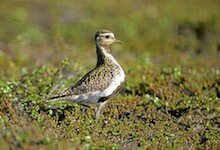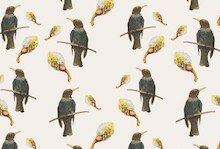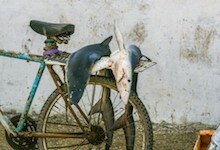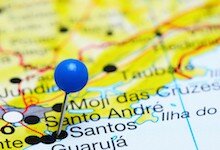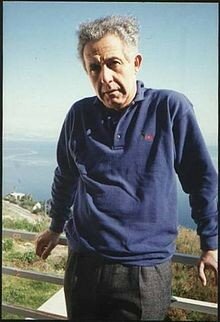
Born in Sofia, Bulgaria in 1935, Pincas lost his father at the age of six and immigrated to Mandatory Palestine with his mother in 1944. He began publishing poetry in Israeli newspapers and magazines in 1951, and is the recipient of the Bernstein Prize, the Israel Prime Minister`s Prize and, most recently, the prestigious Israel Prize for Literature (2005). He has worked as a night editor for UPI, as a translator, and as an editor at the Am Oved and Sifriat Poalim publishing houses. He has also managed two art galleries and continues his involvement with contemporary art. He lives in Tel Aviv.
The term “measured” suits the poetry of Israel Pincas very well. It may be calculated in numbers: eight books (plus one of prose) and two long periods of silence (1965-1975; 1978-1990) – that is, about 150 poems (including eight very long ones) in over 50 years. And his poetry neither shocks nor screams; Pincas says that he isn’t eager reveal all that he might.
Free verse characterized by an absence of rhyme or its erratic presence, unequal stanza lengths and the use of conversational language, this poetry is also marked by its fragmentary nature. There are strings of snapshots: a port, shining heads, a chunk of fog, chameleons, birds in boxes, cracks, a stage, a wooden cuckoo, a picture on a wall – pictures laden with significance that lead to vague and hidden, perhaps allegorical meaning.
The images may be quite minimalistic:
The evening, the leaf, the stream,
the smoke, hated vowel points*
whose time has passed;
the shadow, the pendulum, the moment,
the hour. And the woman,
the way, the place
and the year. And once again: the evening, the woman, the stream,
the leaf . . .
[‘Night and Day’ section 15]
There are strange and unexpected collocations (“painful honey”, “a bitter purple sea”, “colorful glass soaked with bird’s blood”); sentences combining abstractions with the concrete (“reality penetrated the hall through the air conditioning and the audience shook”); and a mix of people and situations, a blend of nature and things that sharpens the perception of the experience of a moment:
Giant green growths breathed
as after a quick coupling. The leaves
like lazy elephant ears. In the flower arena, a snap-
dragon, hairy love grass, the white
water lily, armed, the drums,
the trumpets, among the stamens and the pistils,
entwined, they suffocate in the marvelous heat.
And the next day the stock market crashes.
[‘To the Equator’]
There is clearly also great sensuality in Pincas’ work: “The air is filled with nectar and bees and the sharp/ scent of myrtle and absinthe/ and acacia.” (‘Two Skinny Birds’) And “The fields fattened then, elongated flower calyces held out their delicate heads/ to swallow, petals dripped gold, sprinkled/ us with pollen. We sank into a troubling, perfumed sleep.” (‘A Sketch of Childhood’)
Yet emotion is restrained, distant. Pincas’ work is prosaic; his lyric speaker delivers only a summary of the storms that he endures. As is his life, divided between Tel Aviv and Paris, Pincas’ poetry is split between material from Israel and that of another culture. Still, this is Mediterranean poetry and it is no wonder that the 1999 volume of his collected poems is titled Mare Nostrum, “our sea,” the Roman name for the Mediterranean, and in Hebrew, Bah-yam ha-attik shelanu, or “our ancient sea,” and that the first poem is ‘A Mediterranean Poem’. Pincas places Israeli lives within a historical and cultural continuum.
Despite this sunny location, Pincas’ poetry shares the mood of T.S. Eliot’s ‘The Wasteland’, a feeling of loss, unease, and absence. This is a world in which “our lives here come to nothing,” (the opening line of ‘The Palace’); a black-and-white world of sculpture gardens, family dinners (none without wine) and the drinking of tea in gardens. It would like to be joyful but is not. And so the words ‘oblivion’, ‘absence’, ‘passing’ and ‘silence’ appear and reappear.
BIBLIOGRAPHY
POETRY
In Hebrew
Fourteen Poems (Arba’a Asar Shirim), Achshav, Jerusalem, 1961
Selected Poems (Meevhar shirim) Mahbarot l'shira, Tel Aviv, 1962
Supper at Ferrara and Other Poems, (Aruhat Erev Be-Ferrara Ve-Shirim Aherim) Yadid Lamechaber, Tel Aviv, 1965
To the Equator, (El Kav Ha-Mashveh) Siman Kriah, Tel Aviv, 1975
Within the House, (Be-Toh Ha-Bayit) Hakibbutz Hameuchad, Tel Aviv, 1978
Discourse on Time, (Hartza’a Al Ha-Zman) Hakibbutz Hameuchad, Tel Aviv, 1991
Genealogy, (Genealogia) Even Hoshen, Ranana, 1997
Mare Nostrum, (Beh-yam ha-atik shelanu), Even Hoshen, Ranana, 1999
In other languages:
Discourse on Time
French: Circleours sur le temps, L`Escampette, Bordeaux, 1997
German: Diskurs über die Zeit, Lyrik Kabinett, München, 2012
PROSE
Antennas and Sensors: 99 Fragments (Antennot veh-hishanim: 99 fragmentim), Even Hoshen, Ranana, 2008
LINKS
In Hebrew
A film about the poet
Complete bibliography
Sponsored by POETRY PLACE




